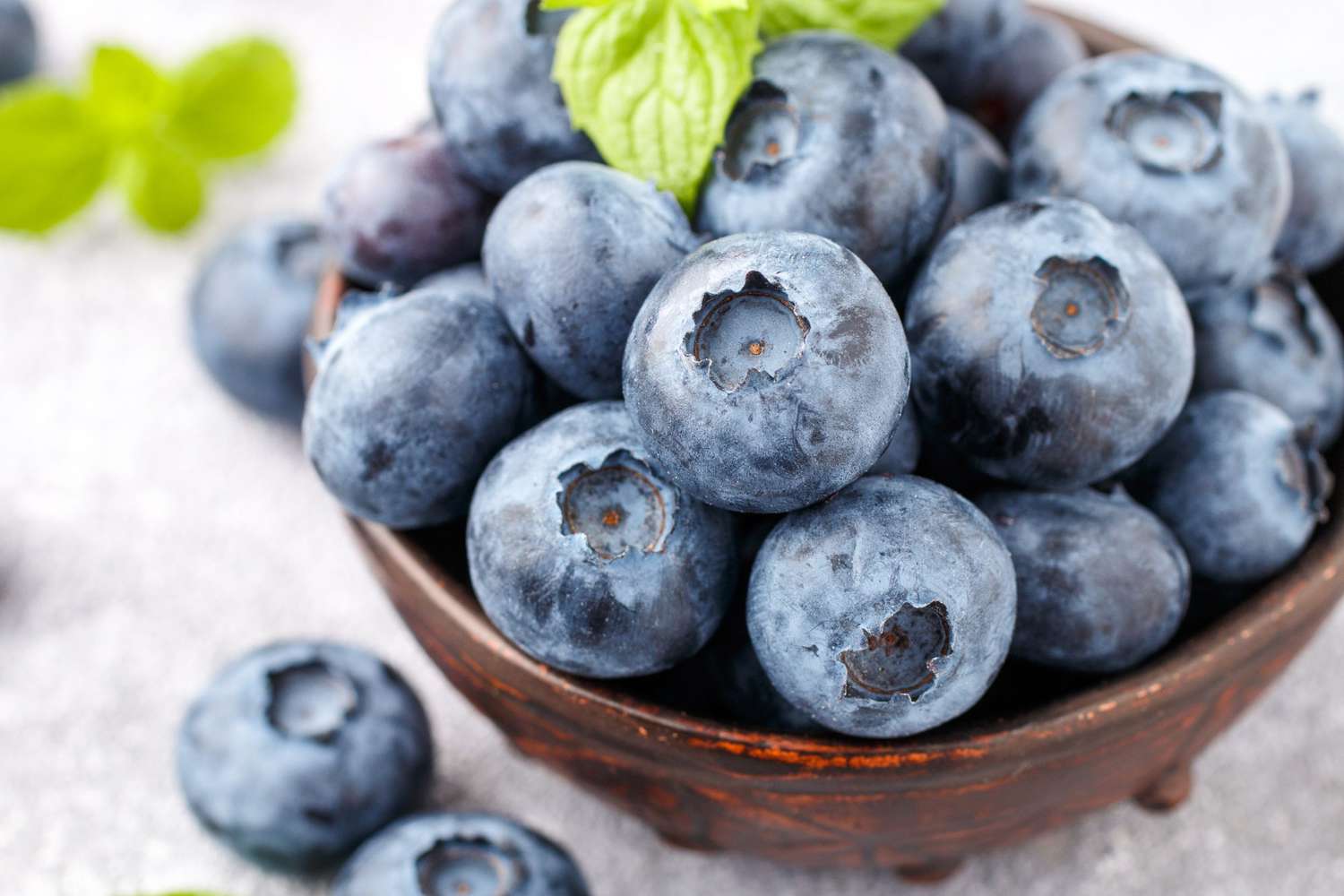The Health Benefits and Risks of Eating Blueberries Every Day

Do you ever wonder about the health impact of those tiny blue bursts of flavor you sprinkle on your cereal or toss into your smoothies? Blueberries are touted for their many health benefits—no surprise, considering they pack more antioxidants than any other fruit, according to a 2021 study published in Molecules. But what happens to your body when you eat blueberries daily? Is there a downside to eating too much? Let’s uncover blueberries’ nutritional value, potential health benefits and drawbacks of daily consumption, and how you can enjoy them as part of a healthy diet.
Blueberries Nutrition Facts

Blueberries are nature’s bite-sized deliciousness packed with nutritional benefits, boasting many vitamins and antioxidants. One cup of blueberries (150 grams) contains the following, per the USDA:
| Nutrient | Amount |
|---|---|
| Calories | 86 |
| Total Carbs | 22 g |
| Dietary Fiber | 4 g |
| Total Sugars | 15 g |
| Protein | 1 g |
| Total Fat | 0 g |
| Saturated Fat | 0 g |
| Sodium | 2 mg |
| Potassium | 116 mg |
| Vitamin C | 15 mg |
| Vitamin K | 29 µg |
| Vitamin A | 5 µg |
Blueberries are an excellent source of fiber, vitamin C, and vitamin K. They are also low in calories and fat. The high levels of antioxidants in blueberries make them great for combating oxidative stress, which can damage cells and contribute to chronic diseases.
Antioxidants in Blueberries
Blueberries contain a group of antioxidants called anthocyanins, which gives them their distinct blue color. These powerful antioxidants may help protect against chronic diseases such as heart disease, cancer, and Alzheimer’s disease.
Fiber in Blueberries
One cup of blueberries provides about 4 grams of dietary fiber, which is important for maintaining a healthy digestive system. Fiber also helps you feel full and satisfied, making it a great addition to any weight loss diet.
Vitamin C in Blueberries
Blueberries are an excellent source of vitamin C, providing around 15% of the daily recommended intake per cup. Vitamin C is essential for immune health, wound healing, and collagen production.
Health Benefits of Blueberries

You May Reduce Your Risk of Chronic Disease
Blueberries are loaded with anthocyanins, which are known to help reduce the risk of chronic diseases such as heart disease, diabetes, and cancer. A 2013 study found that consuming blueberries regularly can lower blood pressure and improve endothelial function, which reduces the risk of heart disease.
They May Improve Memory and Brain Function
Studies have shown that blueberries may improve memory and cognitive function, especially in older adults. In one study, participants who consumed blueberry juice every day for 12 weeks showed improved memory and better performance on cognitive tests compared to those who did not consume blueberry juice.
They May Help Reduce Inflammation
Inflammation is a natural response by the body to injury or infection. However, chronic inflammation can contribute to the development of many chronic diseases. Studies have shown that the antioxidants in blueberries may help reduce inflammation in the body.
Are Blueberries Safe for Everyone to Eat?

Overall, blueberries are safe for most people to eat. However, some individuals may experience allergic reactions to blueberries or other fruits in the same family, such as strawberries or raspberries. If you experience symptoms such as hives, itching, or difficulty breathing after consuming blueberries, you should avoid them.
Additionally, blueberries contain natural sugars, so individuals with diabetes should consume them in moderation and monitor their blood sugar levels.
5 Ways to Enjoy Blueberries
Blueberries are a versatile and delicious fruit that can be enjoyed in many ways. Here are five ideas for incorporating blueberries into your diet:
Top Cereal, Oatmeal or Yogurt
Adding fresh or frozen blueberries to your breakfast cereal, oatmeal, or yogurt is an easy way to boost the nutritional value of your meal.
Add to Smoothies
Blueberries make a great addition to smoothies. Blend them with other fruits, such as bananas or strawberries, and some almond milk for a delicious and nutritious treat.
Include in Baked Goods
Blueberries add a pop of flavor to baked goods such as muffins, bread, and pancakes. Try adding blueberries to your favorite recipe for a tasty twist.
Use in Homemade Jam
Making your own jam is a great way to enjoy blueberries all year round. Simply cook blueberries with sugar and pectin, then store in jars in the fridge or freezer.
Add to Fresh Salads
Blueberries are a great addition to fresh salads. Toss them with some mixed greens, nuts, and a vinaigrette dressing for a refreshing and healthy lunch.
Frequently Asked Questions
How many blueberries can you eat a day?
There is no set amount of blueberries that you should eat per day, but incorporating them into your diet regularly is recommended. The USDA recommends consuming 1.5-2 cups of fruit per day, which can include fresh or frozen blueberries.
Do blueberries detox your body?
There is no scientific evidence to support the claim that blueberries have detoxifying properties. However, the antioxidants in blueberries may help protect against oxidative stress, which can damage cells.
Are blueberries good for body fat?
Blueberries are low in calories and fat, making them a great addition to any weight loss diet. Additionally, the fiber in blueberries helps you feel full and satisfied, which can prevent overeating.
Video
Conclusion
Overall, blueberries are a delicious and nutritious fruit that offer many health benefits. They are packed with vitamins, fiber, and antioxidants, making them great for maintaining a healthy body and reducing the risk of chronic diseases. Incorporating blueberries into your diet is easy and versatile, whether you add them to your breakfast, smoothies, baked goods, salads, or enjoy them on their own. Just remember to consume them in moderation and monitor any potential allergic reactions or interactions with other medications. With so many benefits to offer, it’s no wonder blueberries are a popular choice among health-conscious individuals.













